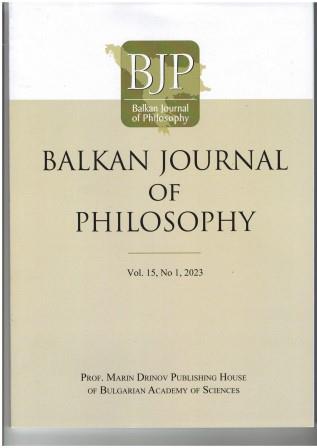‘Conspiracy against Humanity’: Is Peter Wessel Zapffe an Anti-natalist?
‘Conspiracy against Humanity’: Is Peter Wessel Zapffe an Anti-natalist?
Author(s): Silviya SerafimovaSubject(s): Philosophy, Ethics / Practical Philosophy, Aesthetics, Special Branches of Philosophy, Philosophy of Mind
Published by: Институт по философия и социология при БАН
Keywords: Peter Wessel Zapffe; Thomas Ligotti; anti-natalism; multifrontal catastrophes; necessary tragic
Summary/Abstract: The main objective of this article is to analyze the reasons behind Thomas Ligotti’s recognition of Peter Wessel Zapffe as an anti-natalist. Specifically, I argue that Ligotti’s focus on Zapffe’s early essay The Last Messiah (1933) alone results in some misunderstandings of Zapffe’s views, which make room for coining him an anti-natalist. These misunderstandings ground associated dichotomies of the type, Ligotti’s misinterpretation versus Zapffe’s theory, such as the dichotomy of self-deception versus heterotelic metaphysical activity of phantasy, as embedded in that of illusions versus fixations, and the dichotomy tragedy versus necessary tragic. Comparing and contrasting Ligotti’s analysis of three examples of Zapffe’s works including The Last Messiah and Fragments of an Interview (1959), as well as choosing one more example – that of Zapffe’s monograph On the Tragic (1941) – I aim to demonstrate why reducing Zapffe’s ideas of the necessary tragic and multifrontal conflicts to anti-natalism per se simplifies the unique philosophical background in which these ideas occur.
Journal: Balkan Journal of Philosophy
- Issue Year: XVI/2024
- Issue No: 1
- Page Range: 71-82
- Page Count: 12
- Language: English
- Content File-PDF

